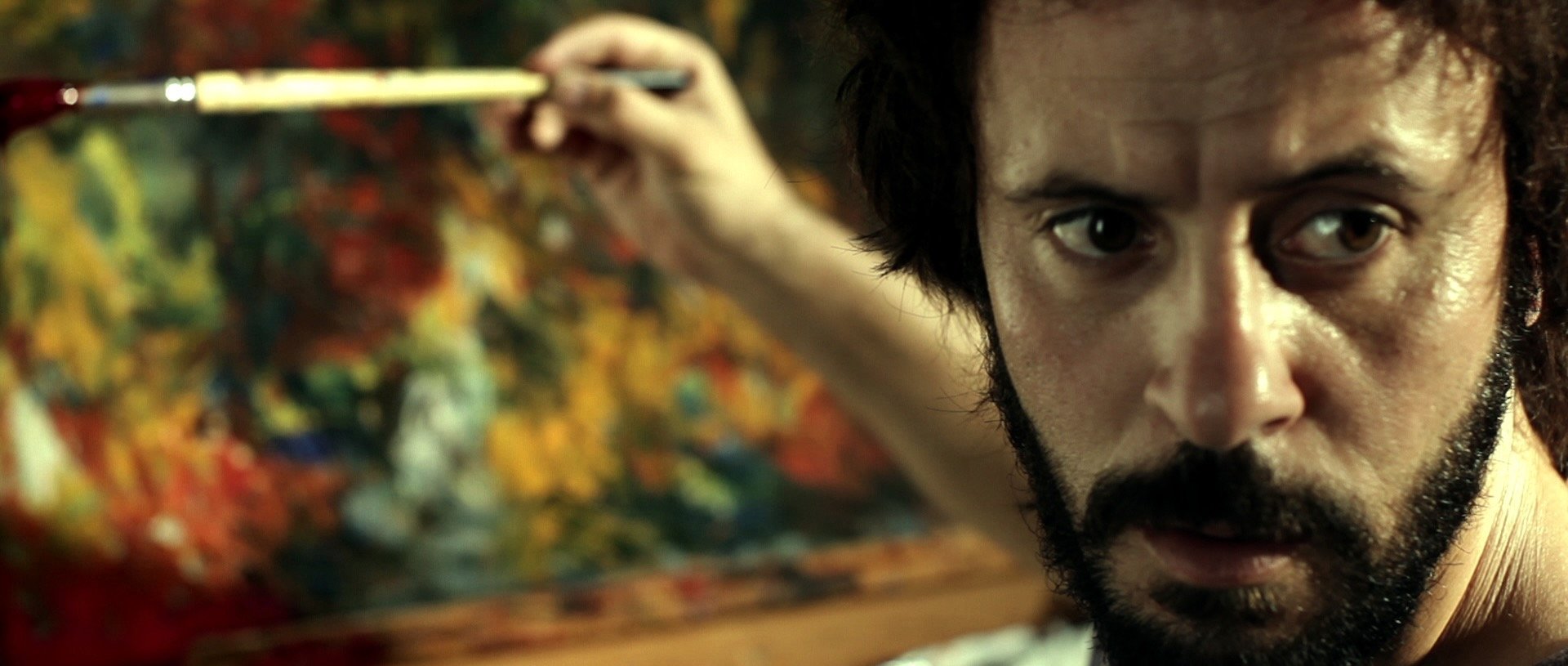mars at
sunrise
DIRECTED BY JESSICA HABIE
Mars at Sunrise Trailer
Mars at Sunrise tells the story of an imprisoned Palestinian painter who uses his imagination to free himself from solitary confinement.
“Mars at Sunrise” is a thoughtful and inventive look at a seemingly endless war.”
jeannette catsoulis
new york times
Director’s Statement
Mars at Sunrise is a film inspired by the life of Hani Zurob. I first met Hani years ago while working on my film Meet Me Out of the Siege. During our conversations, he recounted the torture he endured and the complex, perverse relationship with his jailor. His interrogator had demanded that he collaborate with Israeli Intelligence by revealing which artists in Ramallah had connections to various “terrorist” organizations. The officer even instructed Hani to sketch his portrait. When Hani, his hands bound with plastic handcuffs, refused to sign the sketch, the officer broke the hand he believed was Hani’s drawing hand.
This harrowing story left me questioning: What interest could a military man have in a painter? Could it be that, within the interrogator, there existed a creative spirit akin to Hani's? These questions led me to explore the inner worlds of these two men.
When the screenplay was finished, I sent it to Hani. Our friendship was built on deep trust and mutual respect, and I assured him that I wouldn’t create a film that would harm Palestine or simplify his story. I promised to avoid juxtaposing his suffering unfairly against that of his jailor or perpetuating harmful stereotypes about the occupation.
But when Hani read the script and discovered that the interrogator in the film was portrayed as an artist, he felt I had pushed the limit too far. Could I dare to imagine the man who tortured him as an artist? We had originally planned to use Hani’s paintings in the film for the character of Khaled, but he refused, saying I could not use them.
Eventually, I came to terms with the reality that I might never fully satisfy my friend. I realized that creating a film about a torture victim’s experience without the victim feeling some level of betrayal was nearly impossible. The film became a tapestry woven from hundreds of testimonies, filtered through the lens of my imagination. Even so, many scenes remained word-for-word from Hani’s original account, and the film developed a universal language of its own.
I visited Hani in Paris before the film's release, preparing for what could be one of the hardest conversations of my life. His wife, eight months pregnant, was stuck in Jerusalem, ensnared by the bureaucratic nightmare of the occupation. If she left to deliver the baby in France—securing a French passport for their stateless Gazan child—she risked losing her Jerusalem ID and the right to live in her birthplace. Though we sat in a small Parisian painting studio, Hani remained tethered to the oppressive realities of the occupation.
As we watched the film together, I trembled with nerves, clutching a tiny cup of strong Arabic coffee. When the credits rolled, I braced myself, anticipating his reaction. Then he turned to me, smiled—a soft, genuine, reflective smile—and said, “Mabrouk.” Congratulations.
Hani acknowledged the difficulty of seeing parallels between Khaled and Eyal’s stories but ultimately found the work strong, sophisticated, and intelligent. He believed Khaled’s character allowed Eyal to see himself for who he had become. In that moment, I felt immense gratitude for those who trusted me with their stories and a profound hope that we can transcend the many walls that divide us.
“There are films that stay with you long after the closing credits have rolled on by. Mars at Sunrise is such a film.”
the independent film critic
“Addressing the Israeli-Palestinian conflict through stylized compositions, nontraditional narrative and a stripped-down aesthetic, Jessica Habie's "Mars at Sunrise" distills a war among many to a single, devastating duel.”
jeannette catsoulis
new york times
“Mars at Sunrise …is an accomplishment”
kenneth r. morefield




